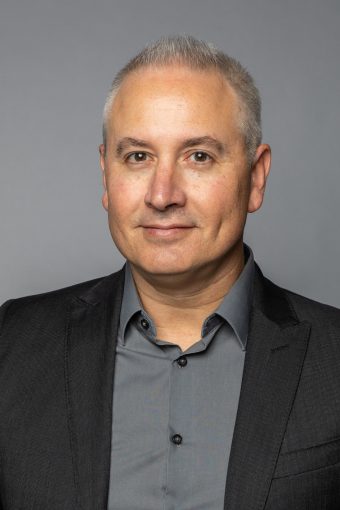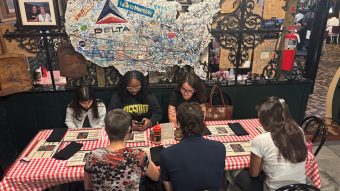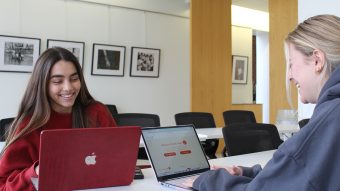By Eric Stann


March 26, 2025
Contact: Eric Stann, StannE@missouri.edu
Differing political perspectives are a part of everyday life, but navigating conversations with those who have different views isn’t always easy. But what if students had the tools to turn those disagreements into meaningful discussions?
At the University of Missouri, the Truman School of Government and Public Affairs is helping Mizzou students develop the skills to make that shift. The effort is part of a national partnership between the Constructive Dialogue Institute, the Volcker Alliance, and thirteen other colleges and universities, including Cornell University, the University of Michigan and the University of Virginia.
“The Truman School’s mission is to promote effective public service, democracy and diplomacy,” Lael Keiser, director of the Truman School, said. “The partnership with the Constructive Dialogue Institute and the Volcker Alliance has helped us create initiatives that give students, future public servants and the broader community skills to use constructive dialogue to solve problems across ideological divides.”
Associate Professor Brian Kisida teaches a fall semester class called Democracy, Pluralism and Civil Discourse, which was created through this national partnership. The goal is to help students turn challenging debates into constructive dialogue with humility, empathy and respect. Instead of focusing on winning arguments, students learn to understand others with different perspectives, ask clarifying questions and communicate more effectively.
“We’ve reached a point where Americans are increasingly polarized, viewing those on the ‘other side’ as evil and untrustworthy, rather than simply holding different values and opinions,” Kisida said. “By using skills like active listening and approaching topics with humility, as well as listening to each other charitably, this course pushes students to think differently, communicate more effectively and form lasting connections, both in and out of the classroom. A critical element of the course is addressing the partisan perception gap, where individuals from different sides hold distorted views of each other’s beliefs. As it turns out, when people actually listen to each other in good faith, we’re not nearly so divided as people think.”
Finding common ground
Annalise Miller, a junior political science major from Springfield, Missouri, took Kisida’s class last fall — the first time it was open to all Mizzou students. Expecting a debate-style class, she instead learned the value of open-mindedness over argument.
“This class made me realize that, in challenging conversations, I tend to react emotionally and focus on winning an argument rather than having productive discourse,” she said. “It taught me to engage in discussions with a more open mind, focusing on understanding different perspectives rather than just forming counterarguments.”
By the end of the class, Miller was surprised by how much emotional intelligence plays a role in political discourse.
“I hate to say it, but a lot of people, both young and old, lack emotional intelligence,” she said. “Understanding tone, body language and intent can be just as important as the discussion itself.”
The national initiative aims to prepare future leaders to bridge divides and work together, no matter their differences. For Miller, who is passionate about policy and public service, the class has provided real-world skills to turn that passion into action.
“Constructive dialogue leads to collaboration, helping policymakers find common ground, and creates more balanced, effective legislation,” she said. “We live in a politically divided world, so it’s important to be able to navigate difficult conversations with empathy.”



